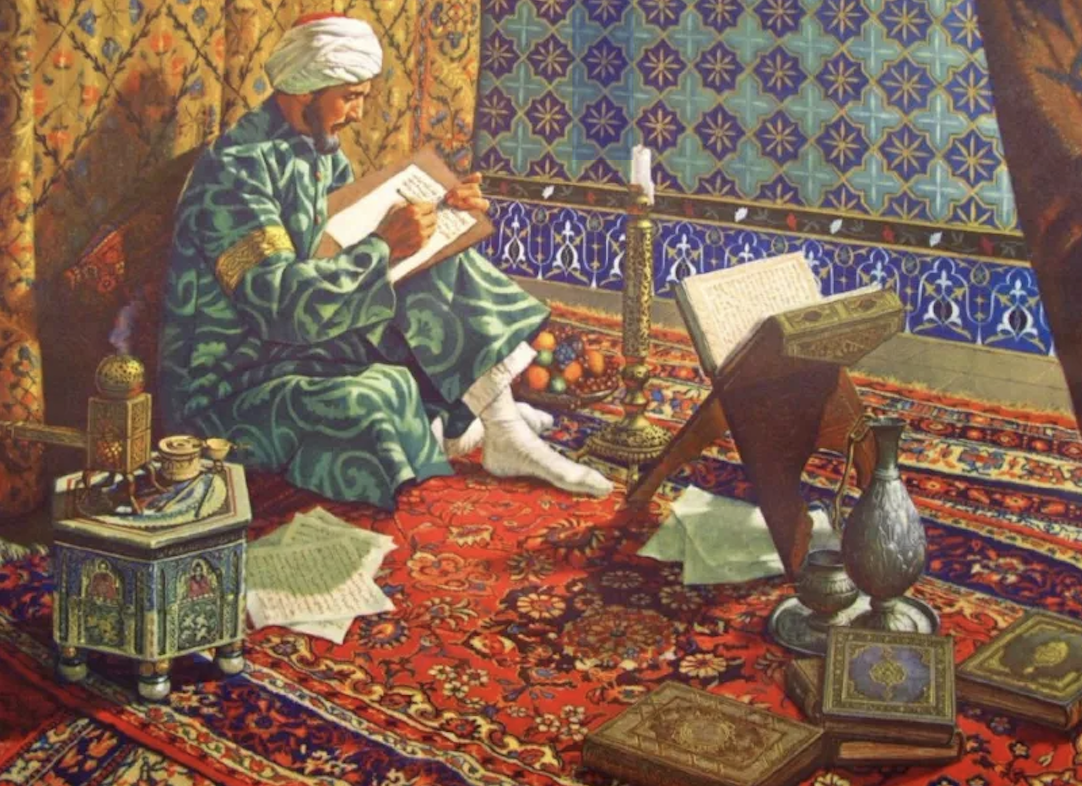By Muhammad Izzuddin
Throughout the history of human civilization, the progress of a nation can be measured by its scientific development as evidenced by the attention given to the culture of reading and writing. In Islam, this culture is directly related to the first revelation that was revealed to the Prophet Sallallahu ‘Alaihi Wassalam in Surah Al-‘Alaq 1 – 5. The first verses of the Qur’an that were revealed indicate that the foundation of a nation’s civilization is based on the tradition of reading and writing.
During the first generation in Islam, the companions of Prophet Muhammad Shallalahu’alaihi Wassalam, started the tradition by copying the Qur’an directly from the Prophet using the medium of date palm fronds, animal skins, or stones. Although the Prophet was illiterate, all his decisions were documented by his secretaries. Not only the Qur’an, military records, political correspondence, and treaties were well documented and archived. At least there are approximately 300 files stored in libraries in various parts of the world.
The tradition of writing and publishing books in the history of Islamic civilization had been increasingly intense since the 8th century AD. It started after the discovery of the technology of making paper and ink by Islamic scientists and scholars, when in 793 AD, Islamic civilization shook the world with a cultural revolution breakthrough, namely the establishment of the first paper printing technology in Baghdad during the Caliphate of Harun Al-Rashid, after which paper mills began to be established in various other parts of the world before it was further developed by European and Western countries. Then, it peaked in the 9th century AD, namely in the era of the seventh Abbasid caliphate, Abdullah Al-Ma’mun, which was centered in the city of Baghdad, Iraq. At that time, the caliph was an inquisitive person.
When Islam took over Andalusia, Islam succeeded in reaching the pinnacle of world civilization that was never been achieved by other nations before influential scholars and scientists in the world such as Ibn Sina, Al-Khawarizmi, Ibn Al Rushd, and other influential scientists made fundamental contributions to the world of science and technology.
In the history of Islamic civilization, Caliph Al-Ma’mun was considered successful in creating a culture of enthusiastic reading and writing among Muslims. He was also very open to scientific civilization from outside Islam by sending some of his envoys to Constantinople to copy scientific manuscripts from Greek scientists, such as the masterpieces of Aristotle and Plato. In the 12th century, the book trade was promising greater profits than other businesses; it was considered the three leading communities after gold and salt.
In this era of the caliphate, the process of writing and printing books was unique. Scientists and scholars made the mosque a place to discuss and compile books. It is said, the content of a book had to be presented by the author to the public before it could be published.
In the 17th century AD, the production of printed books in the Islamic world experienced a systemic decline compared to that found in European countries. This is due to the rejection of publications by the Islamic world when printing technology developed and also the influence of colonists from Europe. Publication in the Islamic world surged again, in the second half of the 19th century AD, after Islamic-themed books began to be published.
The fall of the city of Baghdad at the hands of the ruthless Mongols led by Hulagu Khan, in 1258 AD, became a dark year for Islamic civilization. 500,000 lives were lost and followed by the destruction of hundreds of thousands of books thrown into the Tigris river. This incident not only ended the era of the Abbasid caliphate but also marked the beginning of the decline of Islamic civilization and culture, which was rich in scientific treasures. We can feel the impact of this development to this day. Books and literacy that used to be the instruments of Muslim civilization are now gradually disappearing, not only in terms of quantity but also quality. Hence, it is our duty to restore the glory of Islam by making books and literacy the main entities of civilization because books are a medium for communicating information and ideas that determine the direction of the progress of human civilization.***
